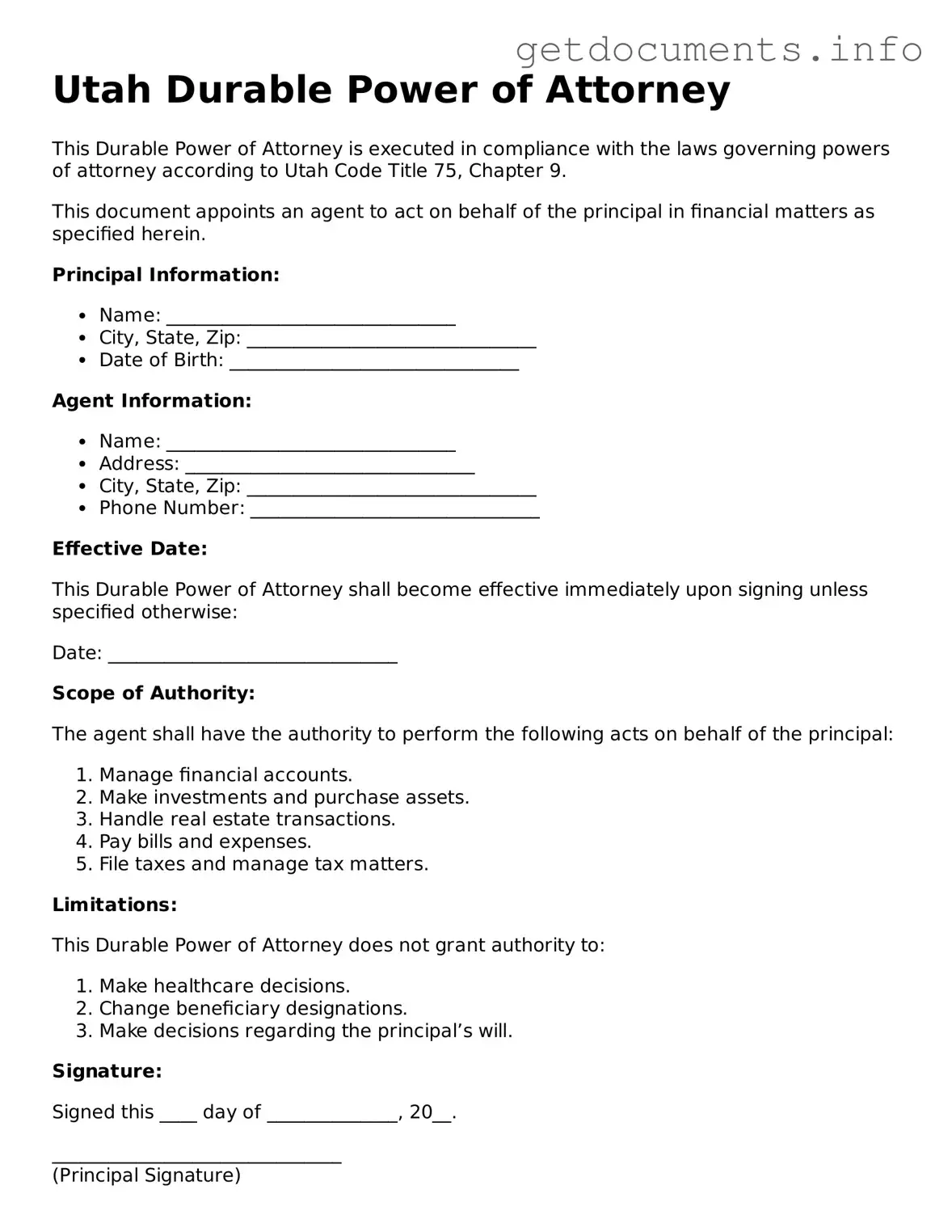Free Durable Power of Attorney Template for Utah
A Durable Power of Attorney form in Utah is a legal document that allows an individual to designate someone else to make decisions on their behalf if they become incapacitated. This important tool ensures that your financial and healthcare choices are respected even when you cannot communicate them yourself. To take control of your future, consider filling out the form by clicking the button below.
Access Durable Power of Attorney Editor

Free Durable Power of Attorney Template for Utah
Access Durable Power of Attorney Editor
Got places to be? Complete the form fast
Fill out Durable Power of Attorney online and avoid printing or scanning.
Access Durable Power of Attorney Editor
or
⇩ PDF File
